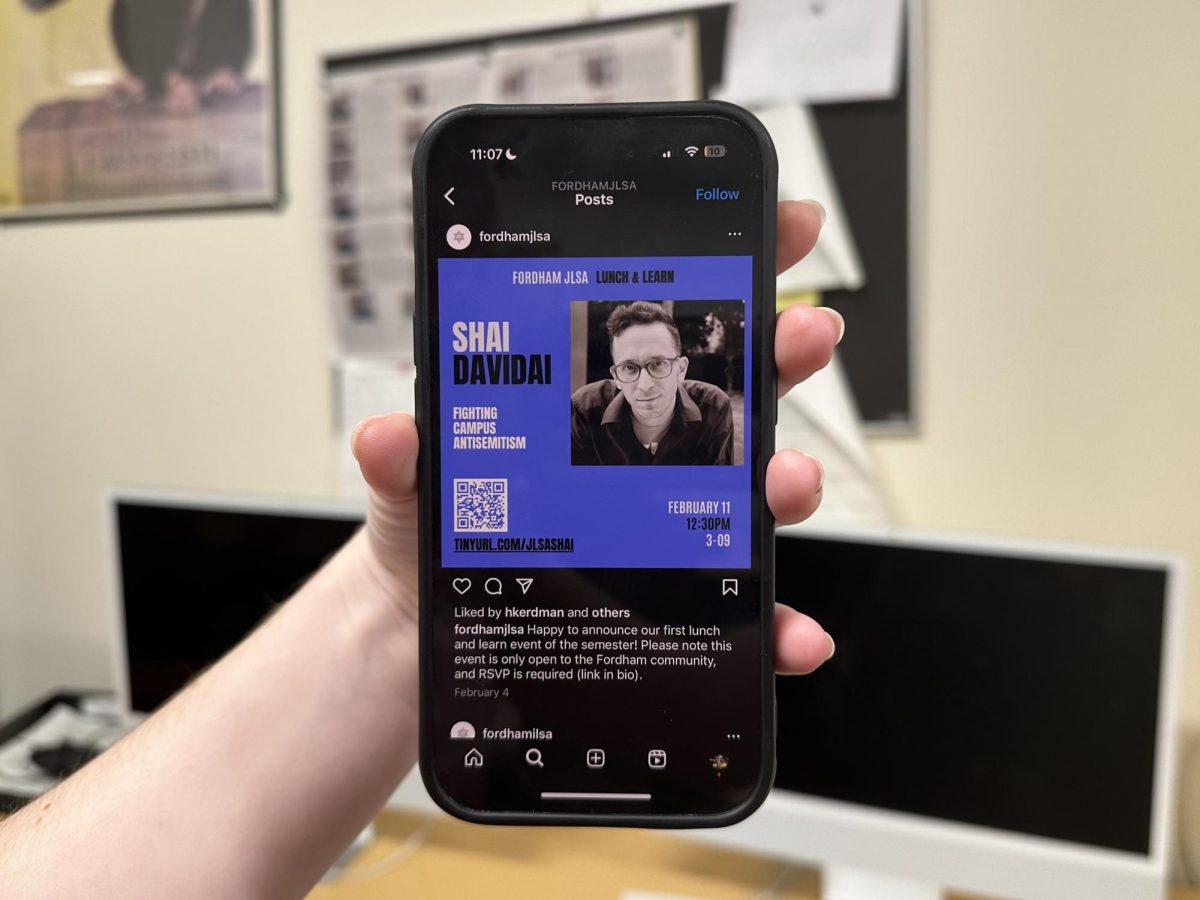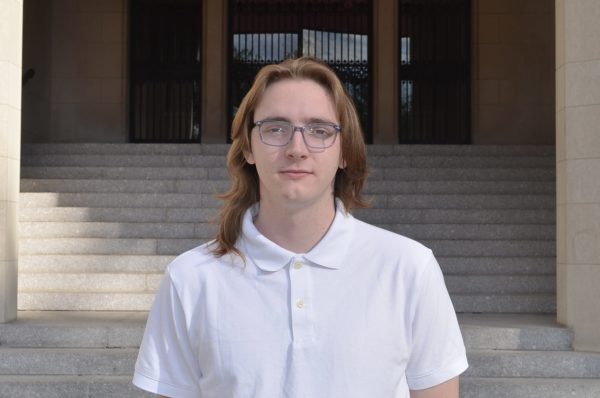Dr. Shai Davidai, an Israeli associate professor at Columbia, spoke at an event hosted by Fordham Law School’s Jewish Law Student Association on Tuesday, Feb. 11. In line with the petition started by Fordham Students for Justice in Palestine (SJP) and Fordham Jewish Voice for Peace (JVP), I oppose Fordham platforming Davidai due to his history of inflaming tensions between advocates for Israel and advocates for Palestine.
Davidai was recently banned from Columbia University’s campus in October 2024, due to repeatedly harassing and intimidating employees during a demonstration commemorating the victims of the Oct. 7 attacks. Davidai has been criticized for neglecting his fiduciary duty to protect students’ safety by aggressively targeting them in person and on social media. In April 2024, several students, in an article by the Columbia Spectator, said they had received violent, racist and misogynistic threats after being targeted by Davidai on social media and that they feared for their safety.
When I spoke to Davidai during a Zoom interview on Feb. 10, he repeatedly emphasized that he supports constructive dialogue between Israeli and Palestinian voices and a two-state solution. However, his actions tell a different story. He has described the Columbia SJP as a “modern-day Hitler Youth,” a statement which he confirmed during our interview. He takes the actions of individuals and attributes them to groups, such as calling the whole of Columbia SJP “terrorist supporters,” to justify singling out the leadership of Columbia SJP on social media, endangering them. By targeting individual students on social media, he has enabled racist extremists to send violent threats or dehumanizing insults at them. No professor should ever be targeting students in a way that jeopardizes their safety.
As thankful as I am that he took the time to speak with me for this article, I do not think Fordham should have him as a speaker at a university-sponsored event. Multiple student groups have made it clear that the normalization of his actions by Fordham makes them feel unsafe on campus. While he emphasized the importance of constructive dialogue in our conversation, his history of escalating conflicts between advocates of Israel and advocates of Palestine speaks louder than his words. Furthermore, his harassment of Columbia students and employees clearly violates Fordham’s own policies on harassment, according to an Instagram post by Fordham SJP.
There is nothing requiring Fordham to provide a platform to an external professor with an ongoing investigation by Columbia University against him, especially given that Fordham refuses to give equal treatment to Fordham Students for Justice in Palestine. Fordham approving this event sets a dangerous precedent for ignoring the safety concerns of students and creates a double standard in how Fordham treats Palestinian versus Israeli voices.
While I agree with Davidai that there is a need for conversation, it needs to be a conversation that addresses everyone’s concerns. Fordham should have waited for Columbia to conclude their investigation, which should be done with due diligence and expediency, before taking such a prominent stance on the issue. Davidai should apologize for the aggressive actions he has taken toward Columbia students and faculty. As it stands, I think this event will only enflame hostility.
Stuart Cremer, FCRH’26, is an English major with a concentration in creative writing from Mountain View, California.
Editor’s Note: This article was published in tandem with “The Difference Between Dialogue and Division.”











































































































































































































